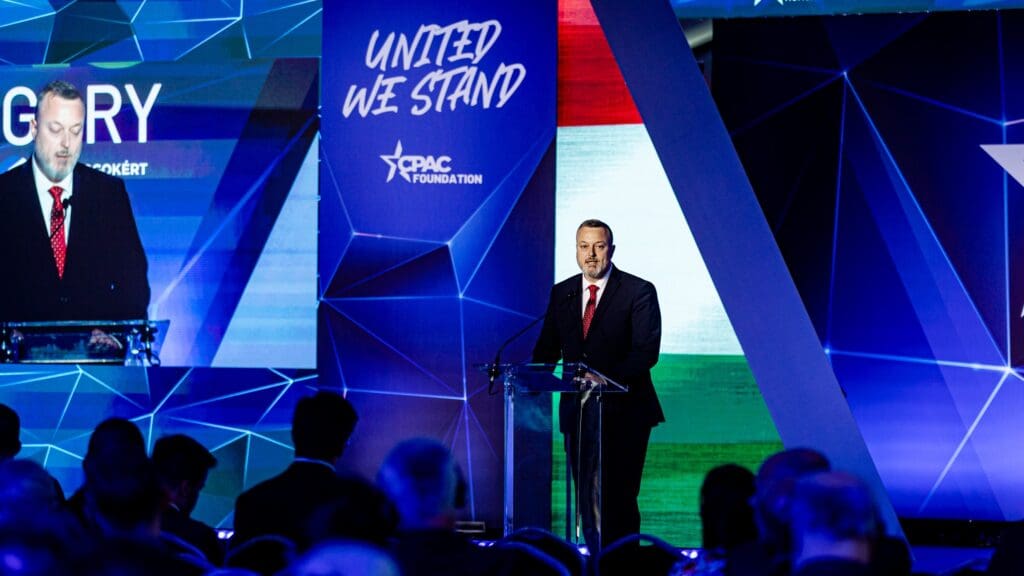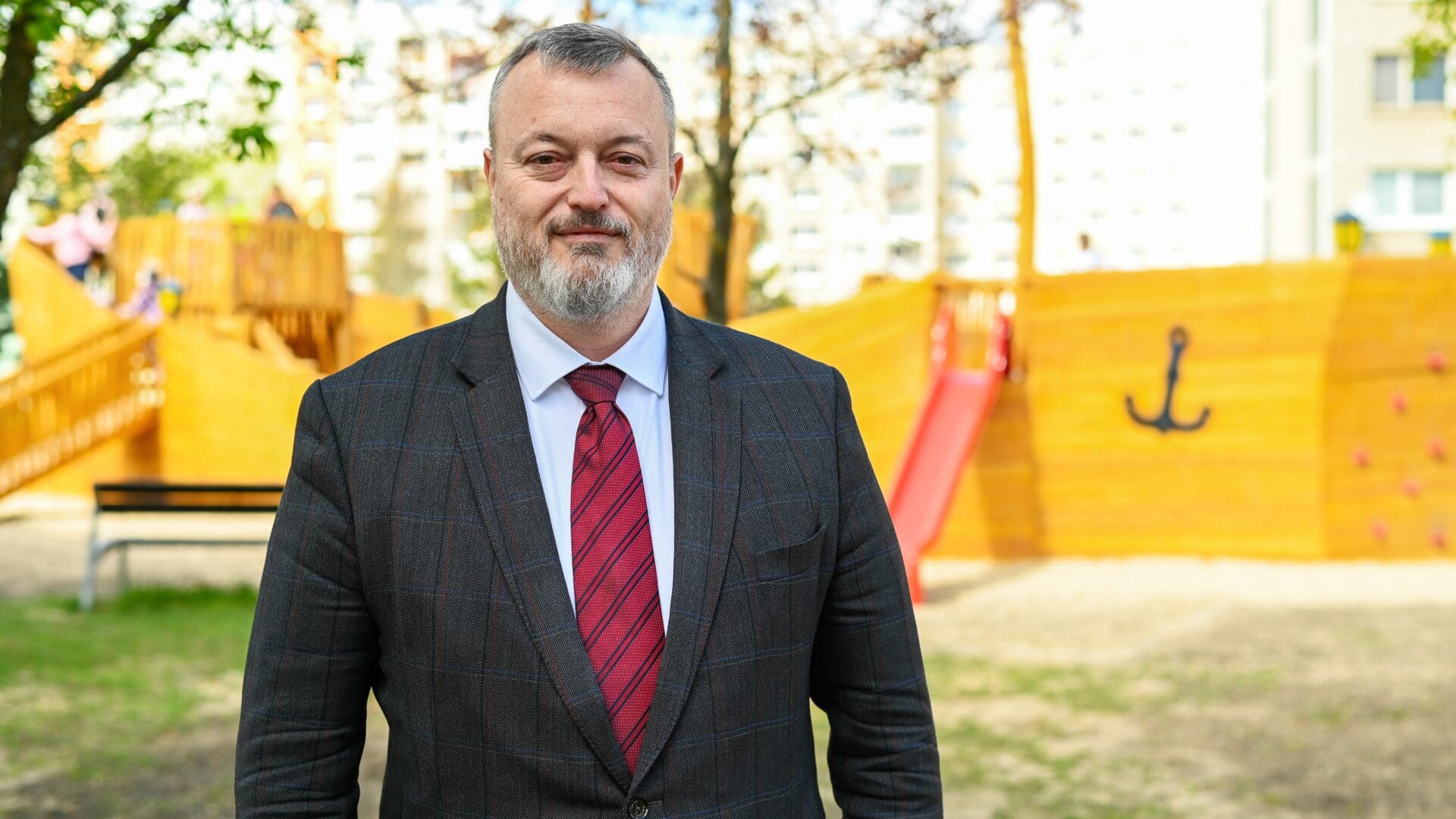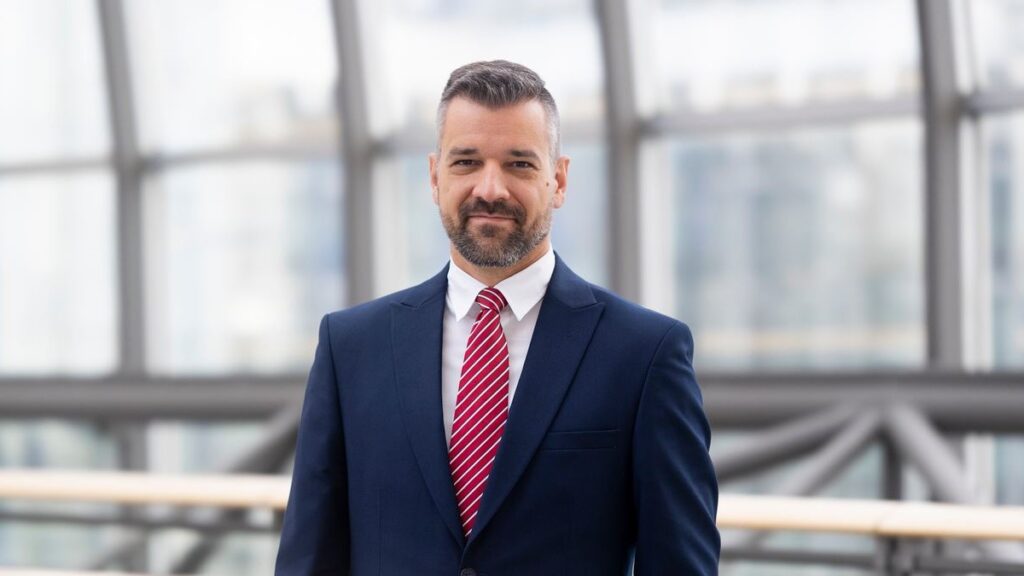Milan Krajniak currently serves as Minster of Labour, Social Affairs and Family. Since 2016, he has been the Vice-Chair of the right-wing SME RODINA political party. An experienced politician with a background in business, he was a representative in the Slovak parliament between 2016 and 2020, and, among other committee memberships. he was member of the Permanent Delegation of the National Council to the Parliamentary Assembly of NATO. Minister Krajniak was the SME RODINA party’s candidate in the 2018 presidential election. He granted an interview to Hungarian Conservative as one of the speakers at CPAC Hungary 2023, held between 4 and 5 May.
In your speech, you spoke about the worldwide ideological indoctrination of children. How would you summarise the current situation in Slovakia in this regard? Is this phenomenon really an issue in your country?
In Slovakia, we are currently creating new curricula for primary schools. So, there is quite an extensive discussion in that respect. There were some intentions to include in the present education reform this kind of ideological bias. So far, however, we acted defensively and managed to prevent that from happening. Our opinion is that these types of ideological matters should be decided by parents.
Parents should decide what and when they want to tell their children.
It is particularly it sexual education that I refer to here.
In your exposé, you mentioned that the method of indoctrination resembles the one the Communists used for decades both in Slovakia and Hungary. Would you elaborate on that?
In both cases, we are talking about people who belong to—as I consider—extreme ideological groups, and have extreme ideological opinions. They want to present their thoughts and ideology as scientific ones. These thoughts are based on what they call ‘facts’. And that is why they say that objectively all children must have access to this kind of ideologic indoctrination.
This is very similar to what the Communists did to us before.
I still remember my primary and secondary school curricula—we were also taught a lot of nonsense back then; the difference is that at the time it was a different kind of propaganda. And I simply do not want to witness the very same situation in which our children will be taught nonsensical ideological matters. If everything were to happen the way the ideological spin doctors desire, we would find ourselves in a situation where we could only tell our children in our homes how to realise that reality is not quite the way the ideologues imagine it to be. This is not why we fought for freedom 30 years ago.
‘United We Stand’—states the motto of CPAC Hungary 2023. You also stressed that ‘We’ must stand together against the tendencies of the new progressive mainstream. How in your view can Hungary and Slovakia be ‘we’ and prosper together in the Carpathian Basin?
For example, in such a way that ensures that European member states cannot be punished for how they perceive and think their children should be educated. This is why we haven’t joined the action against Hungary in this procedure. Our objective is just the same as Hungary’s: we have to rescue our children from this effort. And if you look at the map of the European Union, then you will see that the Central European and Baltic countries, and Italy have understood and are of the opinion that as for the education and upbringing of their children, it is the sovereign state that should decide.

Slovakia has also implemented a family-friendly turn in terms of population policy. Could you please introduce this for the readers in brief? How does it help the Slovak government to conserve Hungarian families in Slovakia?
I think it helps every family in Slovakia, regardless of whether we are talking about Slovak, Hungarian, Czech, or Ukrainian families. The great difference between today’s situation and a year ago is that during this time the child benefit, which all children are entitled to without any conditions up to the age of 18, was doubled. Furthermore, we increased the child tax bonus fivefold. We introduced a new pregnancy bonus for women starting from the fourth month of pregnancy. We provide a benefit for every child in primary school that allows them to have a proper meal at school free of charge. In the meantime, we abolished medicine fees for children under the age of 6—so not only healthcare is free for those children, but the medicine is also free of charge. And last, but not least,
another unique measure is the parental pension. I think we are the first country in the world where parental pension is introduced.
What is the greatest innovation of this measure?
The difference is that for example in the Czech Republic, they add some bonus to the pension of a mother who brought up a child. In Slovakia, each working child transfers a part of his or her social contribution—that would otherwise to be transferred to the state social insurance agency—directly to his or her father and mother. And this is done without higher taxes or contributions, and without lowering the pensions.
Slovakia and Hungary share a history spanning thousands of years. Our culture and societies have a lot in common. How do you see the extent of the exposure of the two countries to progressive ideological tendencies?
I think woke culture—or I could also say woke progressive colonisation—is very dangerous. So, on this, I cannot do anything else but agree with Pope Francis who recently visited Budapest. By the way, progressive colonisation was criticised by several speakers here, at CPAC Hungary—for example, it is problematic that you may get funds from the European Union only if you incorporate into your legal system certain ideological passages. This is what Pope Francis also criticised during his stay in Hungary. The menace of ideological colonisation cannot be overstated—namely, how would you explain to a countryman, for example, who has been long waiting for his bridge to be built in the village, that the construction has to be postponed because of these ideological passages that I have already mentioned were not implemented in the domestic legal system and the state is lacking funds?
It is a very odd situation, because, as we all know, perhaps, the dangers will be felt and seen in 5 years’ time.
But to answer your question, I think the formula is very similar to the one applied overseas, in Britain, and Western Europe. If we take a look at the phenomenon, we find that in Central Europe we also might end up facing the same demands, the same issues. On the other hand, that is not necessarily a bad thing—because we are already aware of what to prepare for.








